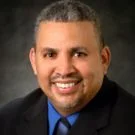Despite the soaring price of gas, people, more than ever, are driving to their vacation destinations or to visit family. The drive may offer you a view of majestic mountains, ocean waves caressing the shore, or the hustle and bustle of the themed amusement parks. But, if you are travelling with children, there are also challenges; they will only play “I Spy” for so long before asking, “Are we there yet?” You don’t need a burning bush to tell you that soon or later you’ll to hear, “He’s (she’s) hitting me.” As though possessing prophetic power, you glance into the rearview mirror just in time to see the “sneak” attack begin. Before the conflict escalates, you speak the words that will restore peace, “I see you.” There is power in the simple words, “I see you” which can convey a warning or praise. Marcel Iseli (2021), a contributing author to Linguablog, states:
“When someone says, “I see you,” they are showing that they recognize what you are doing. Whether you are being sneaky or industrious, someone may say “I see you” to show that your conduct has not gone unnoticed.”
I’ve learned that people don’t really struggle when drawing attention to their accomplishments. But even people that don’t go out of their way to seek praise like to be recognized for a job well done, even if done privately. In fact, the lack of employee recognition is often cited as a main contributor to employee turnover. Conversely, the newspaper or evening news can show the lengths taken to hide embezzlement, drug offenses, murder, or numerous other offenses. It’s like there is a belief that no one is watching; but Proverbs 15:3 (NLV) reminds us:
“The eyes of the Lord are in every place, keeping watch on the evil and the good.”
Jesus understood the importance of seeing people, not as they wanted to be seen but as they were. He emphasized this point when asked by the Pharisees, “Why do you eat and drink with tax collectors and sinners?” He answered (Luke 5:31-32, NIV):
“It is not the healthy who need a doctor, but the sick. I have not come to call the righteous, but sinners to repentance.”
How often do we really see or seek to find those in need? The truth is it’s easy to hide in a crowd. I’m guilty of walking past the homeless person on the street, or ignoring the person at work, school or church that sits alone. But in being called to lead like Jesus, we must learn to remove our blinders. We must put aside our biases, prejudices, and expectations to see people, not as we want but, as they are. Jesus didn’t just have the ability to lead, He saw people, especially those in need. Paul Hammons (2016) tells us that when:
“Jesus looked at those crowds and saw individuals. He saw men and women who were lost, “like sheep without a shepherd” (Matthew 9:36). And even while seeing the crowds, he had a knack for finding the soul who had a need and responding to them as a unique individual. Sometimes they needed to be commended (Mark 12:34). Sometimes they needed to be challenged (Luke 18:22). Sometimes they needed to be corrected (Luke 7:40).”
Today, we have seen an increase in mass shootings, domestic violence, and bullying at work, church, and home. Many people report feeling isolated, talked over, overlooked, or ignored in meetings, family settings, or other social settings. They are feeling alone; as though “they are invisible.” They feel as though they don’t exist. But simply saying, “I see you” can help others break through those feelings of isolation. Lolly Daskal, founder and CEO of Lead from Within, explains that:
“Among the tribes in Northern Natal in South Africa, the tribes greet each other with “Sawu bona” which in the English language is equivalent to saying “hello” The phrase “Sawu bona” literally is defined as “I see you.” Which means: when you see me you bring me into existence.”
Unfortunately, many leaders neglect, or even avoid, the responsibility of seeing those that have the greatest need. We have seen the people that need the most help (employee, child, spouse, etc.) being overlooked, ignored, or simply reassigned because of the leader’s self-interest. Philippians 2:4 reminds us:
“Let each of you look not only to his own
interests, but also to the interests of others.”
Effective leaders understand, the importance of recognizing people for their diligence, accomplishments, or just for being a part of the team. This recognition doesn’t have to be elaborate; it can be as simple as taking the time to saying good morning. This simple act can communicate, “I see and care about you.” Remember, our words have the power to “Speak life” (Toby Mac, 2012).
Challenge: “Jesus was willing to invest in people others would have dismissed” (R. Edmonson, 2016). Today is an opportunity to tell someone, “I see you.” Look around and identify someone that may need words of encouragement and offer them your help. As with the tribes in Northern Natal, you may help bring them into existence. As you undertake this challenge, don’t forget God may be saying, “I see you!”
The Biblical DISC® Assessment will help you see yourself and others as God created them.










